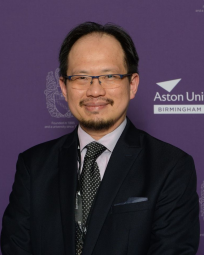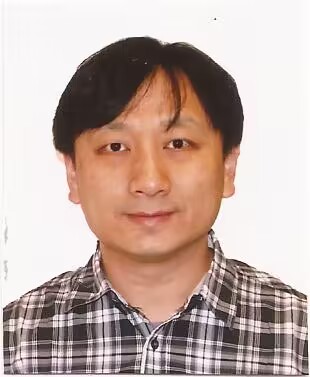
|
Keynote Speakers |
Keynote Speaker
|
|
Prof. Witold Pedrycz Witold Pedrycz (Life Fellow, IEEE) received the M.Sc. degree in computer science, the Ph.D. degree in computer engineering, and the D.Sci. degree in systems science from the Silesian University of Technology, Gliwice, Poland, in 1977, 1980, and 1984, respectively.,He is a Professor and the Canada Research Chair of computational intelligence with the Department of Electrical and Computer Engineering, University of Alberta, Edmonton, AB, Canada. He is also with the System Research Institute, Polish Academy of Sciences, Warsaw, Poland. He has authored 15 research monographs covering various aspects of computational intelligence, data mining, and software engineering. His current research interests include computational intelligence, fuzzy modeling, granular computing, knowledge discovery and data mining, fuzzy control, pattern recognition, knowledge-based neural networks, relational computing, and software engineering.,Prof. Pedrycz was a recipient of the IEEE Canada Computer Engineering Medal, the Cajastur Prize for Soft Computing from the European Center for Soft Computing, the Killam Prize, and the Fuzzy Pioneer Award from the IEEE Computational Intelligence Society. He is intensively involved in editorial activities. He is an Editor-in-Chief of Information Sciences, WIREs Data Mining and Knowledge Discovery (Wiley), and the International Journal of Granular Computing (Springer). He currently serves as a member of a number of editorial boards of other international journals and is a Former Editor-in-Chief of IEEE Transactions on Systems, Man, and Cybernetics—Part A: Systems and Humans. He is a Foreign Member of the Polish Academy of Sciences. He is a Fellow of the Royal Society of Canada. Title: Bringing Knowledge to Design and Analysis in Machine Learning Abstract: Over the recent years, we have been witnessing an unpreceded progress in Machine Learning (ML) that has resulted in highly visible and impactful accomplishments reported in numerous areas of applications. Data are central and of paramount relevance to the design methodologies and algorithms of ML. While they are behind successes of ML, there are also far-reaching challenges that must be prudently addressed in light of the growing importance of quests for interpretability, transparency, credibility, stability, and explainability and a scope of applications and deployment requirements. Recently, knowledge associated with the problem for which ML models are constructed, has started to play a visible role and impacted the landscape of the ML methodologies by offering an original paradigm referred to as a knowledge-data ML. As a new discipline, knowledge-data ML focuses on a prudent and orchestrated engagement of data and knowledge in the design practices of the ML architectures. Data and knowledge arise at very different levels of abstraction with knowledge being formalized and represented at symbolic level. We advocate that to develop a cohesive and unified framework of coping with data and knowledge in learning processes, one has to reconcile highly distinct levels of abstraction and with this regard information granules play a pivotal role. We offer a taxonomy of knowledge by distinguishing between scientific and common-sense knowledge and elaborate on a spectrum of ensuing knowledge representation scheme. In the sequel, the main categories of knowledge-oriented ML design are discussed including physics-informed ML (with the reliance of scientific knowledge), an augmentation of data driven models through knowledge-oriented constraints, a development of granular expansion of the data-driven model and ways of building ML models in the presence of knowledge conveyed by rules. When analyzing the proposed categories, it is also clearly explained how the new ML environment helps avoid a growing effect of data blinding.
|
Invited Speaker
|
|
Prof. Victor Chang Prof. Victor Chang is currently a Professor of Business Analytics at Aston Business School, Aston University, UK. He was a Professor of Data Science and Information Systems at SCEDT, Teesside University, Middlesbrough, UK, between September 2019 and May 2022. He was a Senior Associate Professor, Director of Ph.D. (June 2016- May 2018) and Director of MRes (Sep 2017 - Feb 2019) at International Business School Suzhou (IBSS), Xi’an Jiaotong-Liverpool University (XJTLU), Suzhou, China, between June 2016 and August 2019. He was also a very active and contributing key member at Research Institute of Big Data Analytics (RIBDA), XJTLU. He was an Honorary Associate Professor at University of Liverpool. Previously he was a Senior Lecturer at Leeds Beckett University, UK, between Sep 2012 and May 2016. Within 4 years, he completed Ph.D. (CS, Southampton) and PGCert (Higher Education, Fellow, Greenwich) while working for several projects at the same time. Before becoming an academic, he has achieved 97% on average in 27 IT certifications. He won a European Award on Cloud Migration in 2011, IEEE Outstanding Service Award in 2015, best papers in 2012, 2015 and 2018, the 2016 European special award and Outstanding Young Scientist 2017. He is a visiting scholar/Ph.D. examiner at several universities, an Editor-in-Chief of IJOCI & OJBD journals, former Editor of FGCS, Associate Editor of IEEE TII, JGIM, IJBSR, IJEBM & Cyber Security & Apps. He's also an Editor of Information Fusion, IDD and Scientific Reports journal, a founding chair of two international workshops and founding Conference Chair of IoTBDS and COMPLEXIS since Year 2016. He is the founding Conference Chair for FEMIB since Year 2019. He published 3 books as sole authors and the editor of 2 books on Cloud Computing and related technologies. He gave 48 keynotes at international conferences. He is widely regarded as one of the most active and influential young scientists and experts in IoT/Data Science/Cloud/security/AI/IS, as he has experience developing 10 different services for multiple disciplines. Title: Knowledge Graph and Deep Learning-based Text-to-GraphQL Model for Intelligent Healthcare Research Abstract: Text-to-GraphQL (Text2GraphQL) is a task that converts the user's questions into Graph + QL (Query Language) when a graph database is given. That is a task of semantic parsing that transforms natural language problems into logical expressions, which will bring more efficient direct communication between humans and machines. The existing related work mainly focuses on Text-to-SQL tasks, and there is no available semantic parsing method and data set for the graph database. In order to fill the gaps in this field to serve the medical Human–Robot Interactions (HRI) better, we propose this task and a pipeline solution for the Text2GraphQL task. This solution uses the Adapter pre-trained by “the linking of GraphQL schemas and the corresponding utterances” as an external knowledge introduction plug-in. By inserting the Adapter into the language model, the mapping between logical language and natural language can be introduced faster and more directly to better realize the end-to-end human–machine language translation task. In the study, the proposed Text2GraphQL task model is mainly constructed based on an improved pipeline composed of a Language Model, Pre-trained Adapter plug-in, and Pointer Network. This enables the model to copy objects' tokens from utterances, generate corresponding GraphQL statements for graph database retrieval, and builds an adjustment mechanism to improve the final output. And the experiments have proved that our proposed method has certain competitiveness on the counterpart datasets (Spider, ATIS, GeoQuery, and 39.net) converted from the Text2SQL task, and the proposed method is also practical in medical scenarios.
|
|
|
Prof. Patrick C. K. Hung Patrick C. K. Hung is a Professor and Graduate Program Director of Computer Science at Ontario Tech University, Faculty of Business and Information Technology. He is a Leverhulme Visiting Professor at Aston University, England, and an Honorable Guest Professor at Shizuoka University, Hamamatsu, Japan. He was also a Distinguished Visiting Fellow at Abertay University, Scotland, and a Visiting Researcher at the University of São Paulo, Brazil. Dr. Hung worked with Boeing Research and Technology in Seattle on aviation services-related research with two U.S. patents on the mobile network dynamic workflow system. Before that, he was a Research Scientist with Australia's Commonwealth Scientific and Industrial Research Organization. He is a founding member of the IEEE Technical Committee on Services Computing and IEEE Transactions on Services Computing. In addition, he is an editorial board member for the IEEE Transactions on Engineering Management. Title: Children's Privacy Protection Engine for Smart Anthropomorphic Toys Abstract: A toy is an item or product intended for learning or play, which can benefit childhood development. Children’s toys have become increasingly sophisticated over the years, shifting from simple physical products to toys that engage the digital world. Toy makers are seizing this opportunity to develop products that combine the characteristics of traditional toys, such as dolls and stuffed toys, with computing software and hardware. An innovative anthropomorphism toy is defined as a device consisting of a physical toy component in the humanoid form that connects to a computing system through networking and sensory technologies to enhance the functionality of a traditional toy. Many studies found that anthropomorphic designs resulted in greater user engagement. Children trusted such designs serve a good purpose and felt less anxious about privacy. While there have been many efforts by governments and international organizations such as UNICEF to encourage the protection of children’s data online, there is currently no standard privacy-preserving framework for mobile toy computing applications. Children’s privacy is becoming a significant concern for parents who wish to protect their children from potential harm related to collecting or misusing their private data, particularly their location. This talk presents the related research issues with video demos.
|
|
|
Associate Professor Manabu Tsukada Dr. Manabu Tsukada is currently an associate professor at the Graduate School of Information Science and Technology, the University of Tokyo, Japan. He is also a designated associate professor at the Center for Embedded Computing Systems, Nagoya University, Japan. He received his B.S. and M.S degrees from Keio University, Japan, in 2005 and 2007, respectively. He worked in IMARA Team, Inria, France, during his Ph.D. course and obtained his Ph.D. degree from Centre de Robotique, Mines ParisTech, France, in 2011. During his pre and postdoc research stages, he has participated in a multitude of international projects in the networked ITS area, such as GeoNet, ITSSv6, SCORE@F, CVIS, Nautilus6, or ANEMONE. He served as a board member of the WIDE Project 2014-2022. His research interests are mobility support for the next-generation Internet (IPv6), Internet audio-visual media, and communications for intelligent vehicles. Title: Integrating Infrastructure-Assisted V2X Communication for Enhanced Cooperative Autonomous Driving Abstract: This presentation delves into the integration of smart infrastructure with Vehicle-to-Everything (V2X) communication to advance the safety and intelligence of Cooperative Autonomous Driving (CAD). We will explore how roadside sensors and V2X communication enhance vehicles' environmental awareness, enabling them to make safer and more informed decisions. The session will highlight key projects such as AutowareV2X and AutoMCM, demonstrating the potential of coordinated vehicle interactions to improve driving efficiency and safety. Furthermore, the talk will discuss the role of roadside LiDAR in providing precise localization, even in challenging environments. By showcasing the synergy of these cutting-edge technologies, the presentation aims to illustrate a future of safer, more connected, and efficient autonomous driving.
|
|
|
Prof. Huiyu Zhou
University of Leicester, UK Dr. Huiyu Zhou received a Bachelor of Engineering degree in Radio Technology from Huazhong University of Science and Technology of China, and a Master of Science degree in Biomedical Engineering from University of Dundee of United Kingdom, respectively. He was awarded a Doctor of Philosophy degree in Computer Vision from Heriot-Watt University, Edinburgh, United Kingdom. Dr. Zhou currently is a full Professor at School of Computing and Mathematical Sciences, University of Leicester, United Kingdom. He has published over 500 peer-reviewed papers in the field. His research work has been or is being supported by UK EPSRC, ESRC, AHRC, MRC, EU, Innovate UK, Royal Society, British Heart Foundation, Leverhulme Trust, Puffin Trust, Alzheimer’s Research UK, Invest NI and industry. Title: When Parkinson’s Disease Meets Artificial Intelligence Abstract: Parkinson’s disease (PD) is a severe condition that affects the brain. PD causes huge problems in humans such as shaking and stiffness that become worse over time. Early diagnosis and prognosis of PD results in effective and personalised treatment, reduced care costs and better quality of life. In this talk, first of all, Zhou introduces fundamental knowledge about PD and the technologies used for PD identification. This talk is divided into two streams, animal mice- and human-based PD identification. Afterwards, Zhou reports how his research group deal with immersive challenges such as single and multiple mice detection and tracking, single and multiple mice behaviour recognition, and social behaviour analysis using new video analytics technologies developed within the team. Zhou presents the machine learning techniques used to distinguish between normal and PD mice through social behaviour analysis. Zhou also shows the artificial intelligence methods developed within his team for biomarker analysis. Finally, conclusions are given to summarise the talk.
|
|
|
Prof. Jian Zhang Dr. Jian Zhang is Professor of Statistics and the Research Lead of Statistics Group, School of Mathematics, Statistics and Actuarial Science at University of Kent, Canterbury, Kent, United Kingdom. He is the members of London Mathematical Society and of Royal Statistical Society. He was a receiver of Zhong Jiaqing Mathematics Award from the Chinese Mathematical Society. He is currently the Principal Investigator for a Knowledge Transfer Partnerships (KTP) grant awarded by Innovate UK and for an EPSRC grant awarded by UK Research Council. He was in the EPSRC Mathematical Sciences Prioritisation Panel. His main research interests include statistical neuroimaging and machine learning with applications to early diagnosis of brain injury and other brain disorders, computational biology, medical genetics, nonparametric statistics and high-dimensional statistics. Title:Modelling Skewness with Applications Abstract: Skewness, which measures the asymmetry of a distribution, is an important data feature to characterise. Change of data skewness can serve as a basis for detecting an attack upon a sensor network, for providing an early warning for abrupt climate changes, for estimating aggregates of small domain business, for modelling equity excess returns, for characterising sensitivity of anti-cancer drugs, among others(Buttyan et al., 2006; He et al., 2013; Colacito et al., 2016; Ferrane and Pacei, 2017; Dhar et al.,1996). However, skew models may suffer from inferential drawbacks, namely singular Fisher information when it is close to symmetry and diverging of maximum likelihood estimation. This causes a large variation of the conventional maximum likelihood estimate (MLE). Here, we propose a cross-validated maximum penalised MLE to improve its performance when the underlying model is close to symmetry. We develop a theory for the proposal, where an asymptotic rate for the cross-validated penalty coefficient is derived. We further show that the proposed cross-validated estimate is asymptotically efficient under certain conditions. In simulation studies and a real data application, we demonstrate that the proposed estimator can outperform the conventional MLE.
|





